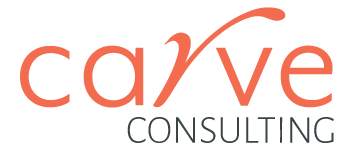Most of us have thought about what we’d do for a million dollars. One reason we find this game so interesting is because the decision involves balancing our core values against our material needs. Making key career decisions should follow the same logic.
Have you ever played the game what would you do for a million dollars?
It’s certainly a fun and interesting dinner party conversation. And one of the reasons this question is so compelling is that it helps us think about the interplay between our values and our needs.
If you’ve ever seen the 90s film Indecent Proposal, which depicts the aftermath of such a decision on a couple’s marriage, then you’ll know what I’m talking about. Everyone has a limit to what they will trade for money or will face consequences if they put money above their values.
When it comes to career decisions, it’s wise to follow similar logic.
A perfect collision
Recently, a report from PwC, What Workers Want, shows that remuneration and reward – including salary and other financial benefits – is now the number one ranking want for employees. While remuneration has always regularly featured in the top three or four of these types of surveys, its rise to first place is indicative of the times in which we live. The cost of living is rising, and the RBA recently announced its sixth consecutive rate rise. Job and financial security are at the forefront of people’s minds after the pandemic, plus the remote working environment of the past few years has reduced many people’s need for recognition to the most tangible thing, being money.
At the same time, money is still not the only factor to consider when taking a job. For example, the PwC report ranked as second ‘wellbeing’ factors such as work/life balance and mental health support, third as ‘experience’, which includes culture, support, relationships and team spirit.
What this means is a potential collision between our needs and our values: we live in an age where we’re told we can be anything, and where having a happy and supportive workplace is incredibly important. Yet at the same time rising cost of living and general uncertainty means our material needs must still be considered.
Careers that follow the money are fine if you’re commercially driven, but for many, taking a role purely for money – or turning one down – can be a tough decision.
I’ve worked with plenty of clients as they navigate this dilemma and know how difficult finding congruence can be. For example, one client who had lots of ideas about what he wanted to do, many of which were high risk. Then, he was approached about an opportunity that provided a good income but was aligned to his current career path as opposed to the more exciting notions of where he wanted to go. So, we sat down and had a long discussion about values. In the end, he worked out that being able to provide financial support to his family was the most important thing to him, and if that was compromised, the rest didn’t really matter after all. He took the job.
The time to think about this is now
Often, these types of decisions catch us on the fly, particularly because many jobs aren’t advertised and come through our networks such as former colleagues or contacts.
So, try to put in place the groundwork for this decision now. Then review what’s a priority regularly as it will change as you move through life stages and your needs and values change.
This can be a confronting process, but it’s essential to be completely honest with yourself.
Try starting with a process that looks like this:
- List your main career values. This can include the type of work, the impact you have, the working environment and people and the industry in which the employer operates.
- Write down your basic needs and work out how much you need to earn to meet these.
- Divide your values list into two: the ones that are as important as your needs, and then the ones that aren’t.
- Take the ‘are’ list of values and then decide – are there any that are non-negotiable? What would be the personal consequences if you did give one of these up for a job that met your needs?
When that next offer comes, you’ll be glad you put in the time and effort to align your values and your needs. So, what would you do for a million dollars?

